The Austrian School is a heterodox school of economic thought that is based on methodological individualism, the concept that social phenomena result exclusively from the motivations and actions of individuals.

Ludwig Josef Johann Wittgenstein was an Austrian-British philosopher who worked primarily in logic, the philosophy of mathematics, the philosophy of mind, and the philosophy of language. He is considered to be one of the greatest philosophers of the modern era.
Karl Ludwig von Bertalanffy was an Austrian biologist known as one of the founders of general systems theory (GST). This is an interdisciplinary practice that describes systems with interacting components, applicable to biology, cybernetics and other fields. Bertalanffy proposed that the classical laws of thermodynamics might be applied to closed systems, but not necessarily to "open systems" such as living things. His mathematical model of an organism's growth over time, published in 1934, is still in use today.
Methodenstreit, in intellectual history beyond German-language discourse, was an economics controversy commenced in the 1880s and persisting for more than a decade, between that field's Austrian School and the (German) Historical School. The debate concerned the place of general theory in social science and the use of history in explaining the dynamics of human action. It also touched on policy and political issues, including the roles of the individual and state. Nevertheless, methodological concerns were uppermost and some early members of the Austrian School also defended a form of welfare state, as prominently advocated by the Historical School.
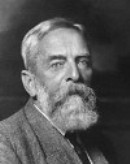
Friedrich Freiherr von Wieser was an early economist of the Austrian School of economics. Born in Vienna, the son of Privy Councillor Leopold von Wieser, a high official in the war ministry, he first trained in sociology and law. In 1872, the year he took his degree, he encountered Austrian-school founder Carl Menger's Grundsätze and switched his interest to economic theory. Wieser held posts at the universities of Vienna and Prague until succeeding Menger in Vienna in 1903, where along with his brother-in-law Eugen von Böhm-Bawerk he shaped the next generation of Austrian economists including Ludwig von Mises, Friedrich Hayek and Joseph Schumpeter in the late 1890s and early 20th century. He was the Austrian Minister of Commerce from August 30, 1917, to November 11, 1918.

The University of Freiburg, officially the Albert Ludwig University of Freiburg, is a public research university located in Freiburg im Breisgau, Baden-Württemberg, Germany. The university was founded in 1457 by the Habsburg dynasty as the second university in Austrian-Habsburg territory after the University of Vienna. Today, Freiburg is the fifth-oldest university in Germany, with a long tradition of teaching the humanities, social sciences and natural sciences and technology and enjoys a high academic reputation both nationally and internationally. The university is made up of 11 faculties and attracts students from across Germany as well as from over 120 other countries. Foreign students constitute about 18.2% of total student numbers.

The University of Graz, located in Graz, Austria, is the largest and oldest university in Styria, as well as the second-largest and second-oldest university in Austria.
In philosophy, praxeology or praxiology is the theory of human action, based on the notion that humans engage in purposeful behavior, as opposed to reflexive behavior and other unintentional behavior.

Ludwig Gumplowicz, was a Polish sociologist, jurist, historian, and political scientist, who taught constitutional and administrative law at the University of Graz. His contributions to establishing sociology as a social science are critical to his success. Gumplowicz was the first great scholar to perceive the circumstances that seem to constitute the essence of the state's origin and development as arising with the utmost precision and systemic exactness. Gumplowicz saw a discipline that could be dedicated solely to the study of the collective ties between social groups and classes as the pinnacle of social science theory, or even pure history. Beginning with this premise, he dedicated himself to studying and investigating social progress with the high intellectual impartiality of a truth seeker.

Mark Thornton is an American economist of the Austrian School. He has written on the topic of prohibition of drugs, the economics of the American Civil War, and the "Skyscraper Index". He is a Senior Fellow with the Ludwig von Mises Institute in Alabama and a Research Fellow with the Independent Institute.
Austrian literature is literature produced by the people of Austria. It is mostly but not exclusively written in German. Some scholars speak about Austrian literature conservatively from the year 1806 on, when Francis II disbanded the Holy Roman Empire and established the Austrian Empire. A more liberal definition incorporates all the literary works written in current and historical Austria, especially when it comes to authors who wrote in German. The seven-volume history of Austrian literature edited by Herbert Zeman and Fritz Peter Knapp is titled Geschichte der Literatur in Österreich. Austrian literature is closely connected with German literature.

Ludwig Heinrich Edler von Mises was an Austrian School economist, historian, logician, and sociologist. Mises wrote and lectured extensively on the societal contributions of classical liberalism. He is best known for his work on praxeology, a study of human choice and action.
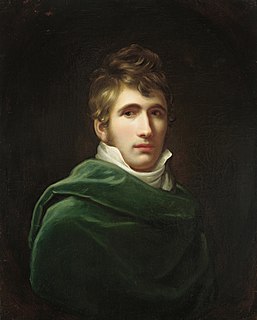
Joseph Karl Stieler was a German painter. From 1820 until 1855 he worked as royal court painter of the Bavarian kings. He is known for his Neoclassical portraits, especially for the Gallery of Beauties at Nymphenburg Palace in Munich, as well as his emblematic portrait of Ludwig van Beethoven, which has become one of his most famous works.
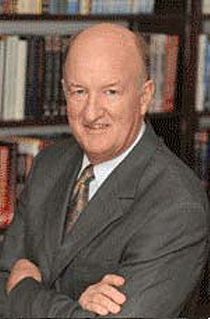
Mark Andrew Skousen is an American economist and writer. He currently teaches at Chapman University, where he is a Presidential Fellow at The George L. Argyros School of Business and Economics. He has previously taught at Columbia Business School, Mercy College, Barnard College, and Rollins College.
The Feldkirch Poetry Award, in German Feldkircher Lyrikpreis, started by Erika Kronabitter, an Austrian artist and writer, is granted annually by the Theater am Saumarkt in Feldkirch, Vorarlberg/Austria. Among the sponsors, there are the Austrian government, the local authorities of Vorarlberg as well as private banks. In 2003, the poetry award was granted for the first time.
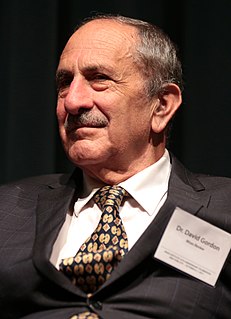
David Gordon is an American libertarian philosopher and intellectual historian influenced by Rothbardian views of economics. Peter J. Boettke, in his Reason Foundation "Reason Papers," Issue No. 19, Fall 1994, describes Gordon as "a philosopher and intellectual historian who is deeply influenced by the Rothbardian strand of economics." He is a senior fellow at the Ludwig von Mises Institute and editor of The Mises Review.

Richard von Strigl (1891–1942) was an Austrian economist. He was considered by his colleagues one of the most brilliant Austrian economists of the interwar period. As a professor at the University of Vienna he had a decisive influence on F. A. Hayek, Fritz Machlup, Gottfried von Haberler, Oskar Morgenstern and other fourth-generation Austrian economists.
Heart Flesh Degeneration is a novel written by Ludwig Laher in 2001 in which the author portrays the Austrian provinces in the years 1940 to 1955.
Ilie E. Torouțiu was an Austro-Hungarian-born Romanian literary historian.
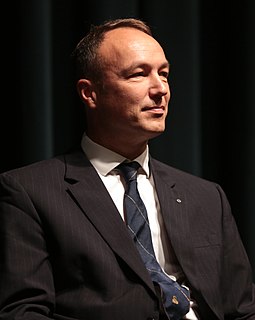
Jörg Guido Hülsmann is a German-born economist of the Austrian School of economics who studies issues related to money, banking, monetary policy, macroeconomics, and financial markets. Hülsmann is professor of economics at the University of Angers’ School of Law, Economics, and Management.












